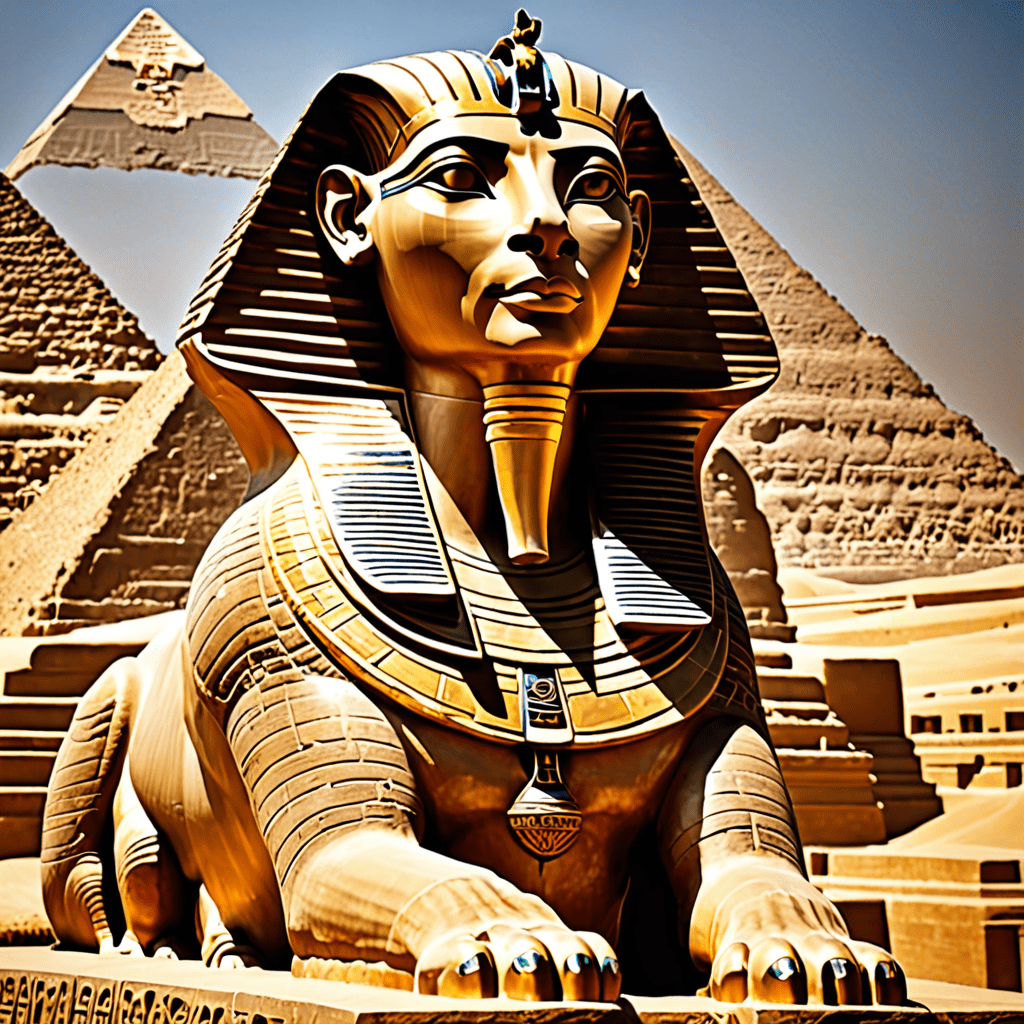The Sacred Rituals: Celebrations in Mythical Places
Introduction to Sacred Rituals and Mythical Places
Sacred rituals are formalized actions, often imbued with religious or spiritual significance, performed in specific contexts. These rituals serve various purposes, including worship, commemoration, and the seeking of divine favor. In contrast, mythical places are locations that hold a significant place in cultural narratives and are often associated with legends, spirituality, and the supernatural. They exist not only in geographical terms but also in the collective imagination of societies.
Studying sacred rituals in mythical places is vital in modern society as they offer insights into human beliefs, cultural traditions, and the ways in which communities connect with the divine and the cosmos. These rituals provide a framework for understanding how humanity has historically sought meaning and connection with the sacred.
Historical Context of Sacred Rituals
Ancient civilizations such as the Egyptians, Greeks, and Mayans engaged in a variety of sacred rituals that were deeply intertwined with their beliefs and mythologies. These rituals were often aimed at appeasing gods, ensuring fertility, or celebrating significant life events.
Mythology has played a crucial role in shaping cultural practices, providing a narrative that explains the origins of the world, the nature of deities, and the moral frameworks within which societies operate. For example:
- The Egyptian rituals surrounding the afterlife, which were rooted in the myths of Osiris.
- The Greek festivals dedicated to Dionysus, celebrating wine, fertility, and the arts.
- The Mayan ballgame, which was more than sport; it was a ritual with cosmological significance.
These historical sacred rituals were significant not just for their immediate contexts but also for their lasting influence on contemporary practices and beliefs.
Mythical Places Around the World
Numerous mythical places are woven into the fabric of various cultures, each representing unique narratives and beliefs. Notable examples include:
- Atlantis: A legendary island described by Plato, believed to have sunk into the ocean, symbolizing advanced civilization and lost knowledge.
- Avalon: A mystical isle in Arthurian legend, often associated with the afterlife and healing.
- El Dorado: A city of gold that represents the quest for wealth and unattainable dreams.
These mythical locations often serve as backdrops for sacred rituals, with communities organizing celebrations that honor their cultural heritage and spiritual beliefs. For instance, the legends surrounding Avalon have inspired various rituals focused on healing and rebirth.
Types of Sacred Rituals
Sacred rituals can be categorized into several types, each serving different purposes within a culture:
- Festivals and Celebrations: These include seasonal festivals, religious holidays, and community gatherings that honor deities or significant events.
- Sacrificial Rituals: Often rooted in ancient practices, these rituals involve offerings to gods or spirits to secure favor or blessings.
- Healing and Purification Rituals: These practices, found across cultures, emphasize the restoration of balance and health, often involving elements like water, fire, and sacred herbs.
Case Study: The Festivals of the Isle of Avalon
Avalon, known from Arthurian legend, is often depicted as a paradise of eternal youth and healing. The celebrations associated with Avalon typically focus on themes of renewal and the mystical aspects of nature. These rituals often include:
- Gatherings at sacred groves or lakes believed to be connected to Avalon.
- Rituals that involve music, dance, and offerings to celebrate the changing seasons.
- Spiritual practices aimed at connecting with the energies of the earth and the divine.
The impact of these rituals on contemporary spirituality is profound, as many modern practitioners seek to reconnect with the earth and their spiritual roots through similar celebrations.
Rituals in the Shadow of Mount Olympus
In ancient Greece, rituals dedicated to the gods were central to cultural life. Mount Olympus, the home of the gods according to Greek mythology, was a focal point for many sacred practices. Notable celebrations included:
- The Olympic Games: Originally a religious festival in honor of Zeus, these games celebrated athletic prowess and unity among city-states.
- Thesmophoria: A festival dedicated to Demeter and Persephone, focusing on fertility and the agricultural cycle.
These rituals not only served religious purposes but also fostered community and cultural identity. Today, their legacy continues to influence modern sports and cultural festivals.
Indigenous Sacred Rituals in Mythical Landscapes
Indigenous cultures often have deep connections to the landscapes they inhabit, with sacred sites that hold significant spiritual value. For example:
- Native American Sacred Sites: Locations such as Bear Butte and Mount Shasta are considered sacred and are used for various rituals, including vision quests and ceremonies.
- Connection to Nature: Many indigenous beliefs emphasize the interconnectedness of all living things, leading to rituals that honor the earth and its cycles.
Case studies of specific rituals, such as the Sun Dance or the Potlatch, illustrate how indigenous peoples celebrate their mythical landscapes and maintain their cultural identities.
Contemporary Adaptations of Ancient Rituals
In modern times, many cultures reinterpret and celebrate ancient rituals, often blending them with contemporary practices. This adaptation is influenced by various factors, including:
- Tourism: Many festivals have been commercialized, leading to a fusion of traditional and modern elements.
- Cultural Revivals: Movements to reclaim and revitalize indigenous and ancient practices are gaining momentum, focusing on authenticity and education.
Examples of festivals that blend mythology with contemporary culture include the Burning Man festival, which incorporates themes of creation and destruction, and the modern-day celebrations of the Winter Solstice, drawing from various cultural traditions.
The Psychological and Social Impact of Celebrating Sacred Rituals
Participating in sacred rituals offers numerous benefits for individuals and communities, including:
- Enhancing a sense of belonging and community.
- Providing a framework for understanding life events and transitions.
- Fostering cultural identity and continuity.
Shared experiences in rituals create bonds among participants, reinforcing social cohesion. Psychologically, engaging with myth and ritual can provide individuals with a sense of purpose and connection to something greater than themselves.
Conclusion: The Enduring Legacy of Sacred Rituals in Mythical Places
The study of sacred rituals in mythical places highlights the enduring human desire to connect with the transcendent. Preserving these traditions is essential not only for cultural heritage but also for the ongoing exploration of human experience.
Future research in this field can further illuminate the connections between ancient practices and contemporary spirituality, offering valuable insights into the role of myths and rituals in shaping human identity and community. As societies continue to evolve, the relevance of these sacred traditions remains a testament to their profound impact on our understanding of the world and our place within it.



